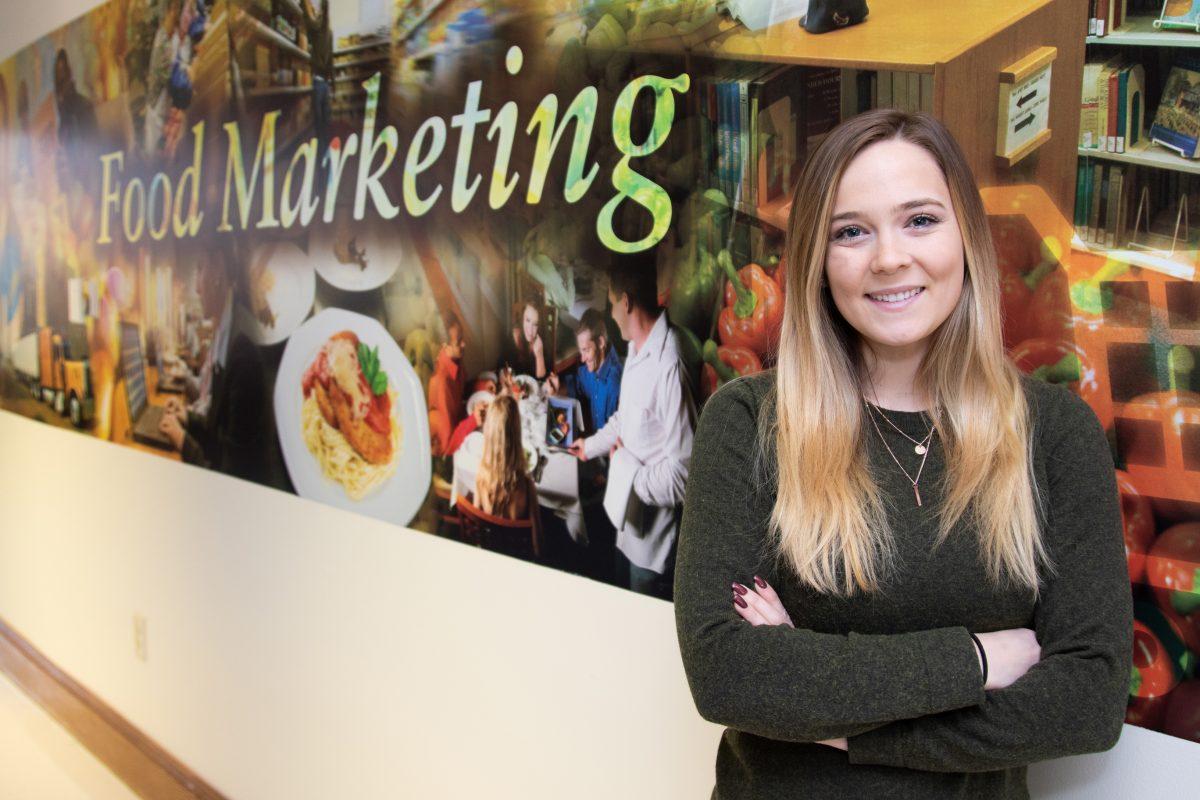Department opts to change to four-year program
The five-year Food Marketing (FMK) Co-op Program, which offered students 18 months of work experience as part of their undergraduate degree, is being phased out with the class of 2022.
The program will be replaced with a four-year model, offering two six-month work terms, in line with other Co-op programs offered by the Erivan K. Haub School of Business.
“After discussion with the faculty of the food marketing department, it was decided by consensus to modify and improve the Food Marketing Co-op program to allow students to graduate in four years along with the students they entered with as freshmen,” said Joseph DiAngelo, Ed.D., dean of the Haub School of Business and interim chair of the food marketing department.
In the new version of the program, students will have Co-op semesters in the fall of their sophomore year and the spring of their junior year, and will make up missed classes in the summers after their freshman and sophomore years.
Previously, students in the five-year program had Co-op semesters in the spring of their sophomore year, the fall semester of their senior year, and the fall of their fifth year, taking two classes during internship semesters.
DiAngelo said the logistics of arranging for students to take those classes while interning contributed to the decision to move to the four-year model, in which students will take specialized summer classes alongside peers in the other Co-op programs.
“More and more, we have students in New Jersey and California, so we have to do classes online,” DiAngelo said. “We didn’t have all the classes online. Some of the classes they needed were Arts & Sciences classes, very few of them were online, so then you had to arrange for independent study. It was just becoming a nightmare to organize.”
In a December 2018 email sent to FMK Co-op students, Jerome Bradley, director of the Co-op program for the Academy of Food Marketing, highlighted the benefits of gaining one year of industry work experience, graduating in four years with peers and matriculating with students enrolled in the general Co-op program.
DiAngelo said one of the main reasons behind the switch was making sure FMK Co-op students could graduate with their peers, adding that the decrease in work experience would not adversely affect students’ job prospects.
“You can’t have it both ways,” DiAngelo said. “You can’t have the 18 months [of work experience] and graduate in four years.”
But Emma Hughes ’21 said it was the 18 months of work experience that drew her to the program.
“The changes will keep students graduating on time which looks better to prospective students, but I feel that it may cheapen the whole Food Marketing Co-Op experience,” Hughes said. “The three internship opportunities provide more work experience, opportunities to learn about yourself and what you like, and the ability to have options. I am not sure if two internships will be able to truly make the program as notable as it currently is.”
Students currently enrolled in the five- year program will not be affected by the change, Bradley told The Hawk.
“They are grandfathered in and will be able to do their full three Co-op experiences as before,” Bradley said. “This will end in December 2021 with the class of 2022. We will run both programs simultaneously for the next three years.”
Although her own Co-op experience will not be affected, Madison Silvestri ’20 said she feels badly for freshmen who came to St. Joe’s specifically for the five-year program. Freshmen apply for the program during their first year, so the only option now available to the class of 2022 is the four-year Co-op.
“There are a lot of people that see the perks of the [five-year] program,” Silvestri said. “So I feel badly for the ones that wanted to do it and now they can’t.”
John Stanton, professor of food marketing, said the department has a great reputation within the food industry and the changes will only improve students’ educational experience.
“The faculty decided that students should be able to have the Co-op program and take minors or other elective courses that will further enhance them,” Stanton said. “An example of a powerful combination would be FMK Co-op major with a minor in analytics. Being able to minor and have course flexibility is now in vogue. The new four-year Co-op program makes that easier.”
Of the 45 freshman students that are currently food marketing majors, 10 are already signed up for the new four-year Co-op program, according to DiAngelo.
“The new four-year year Co-op is better in my opinion,” Stanton said. “Our job as academics is to ensure that you get the best education we can deliver. This sometimes means making changes.”













































